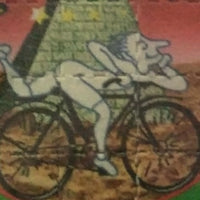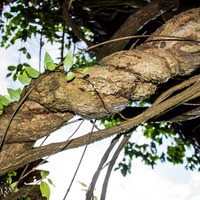Rick Doblin is the founder of the Multidisciplinary Association for Psychedelic Studies (MAPS), an organization that develops medical, legal, and cultural contexts for people to benefit from the careful use of psychedelics. Listen to our interview with Doblin on the Trends w/ Benefits podcast.
“One who breaks an unjust law must do so openly, lovingly, and with a willingness to accept the penalty. I submit that an individual who breaks a law that conscience tells him is unjust, and who willingly accepts the penalty of imprisonment in order to arouse the conscience of the community over its injustice, is in reality expressing the highest respect for law.”—Martin Luther King Jr.
“I was a Vietnam war draft resister. … I turned 18 in 1971, so I was near the end of the lottery and there were a lot of different ways people were objecting to the draft. Some were burning their draft cards, some were running away to Canada, some were pretending to be crazy, some were pretending to be gay, some shot themselves in the foot, some pretended that they had bone spurs.
I studied a lot of nonviolent resistance—Gandhi, Tolstoy, Martin Luther King [Jr.], Thoreau. … That led me to the conclusion that I should not even register for the draft. [Registering] was the very first step where you collaborate. … I was paying taxes, I had a social security number, I was in high school. I just assumed that they had my birthdate and I was going to get caught. As it turned out the strategy was the best possible one I could have chosen because absolutely nothing happened. …
My father didn’t want me to go to Vietnam. He was supportive of my willingness to go to jail, but he said, ‘You’re going to be a felon. You’re never going to be able to have a career that involves a license because you will be disqualified.’ And I was like, ‘OK, that’s a price I’m gonna have to pay. I’m not willing to go to Vietnam to get a certain kind of job.’
Then I said ‘Aha! I can be an underground psychedelic therapist! I don’t need a license for that.’ So that [MLK] quote was fundamentally important to me in my early-on strategy. At that time I identified as a counter-culture, drug-using criminal. Not just because of the drug laws, but also because I was willing to go to jail. … We need our own internal morality. We can’t rely on the outside laws to provide that. They can be guidance, but we need our own internal moral compass.”




